Life
Sign up for our newsletter
We summarize the week's scientific breakthroughs every Thursday.
-
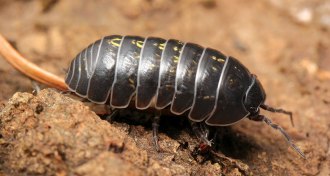 Genetics
GeneticsTo make female pill bugs, just add bacterial genes
Genes from Wolbachia bacteria infiltrated pill bugs and now make genetic males female.
By Susan Milius -
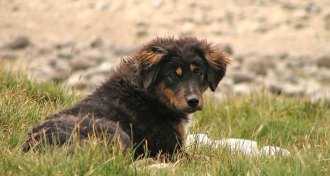 Animals
AnimalsNature has a dog problem
Free-roaming dogs spread disease, kill wildlife by the thousands and have even caused extinctions. But their full effect on the environment has been little studied.
-
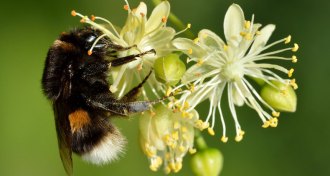 Animals
AnimalsPrimitive signs of emotions spotted in sugar-buzzed bumblebees
When bumblebees eat a sugary snack, they make more optimistic decisions, a new study finds. This could be early evidence for emotion in insects.
-
 Genetics
GeneticsGene linked to autism in people may influence dog sociability
DNA variants were linked to beagles’ tendency to seek human help.
-
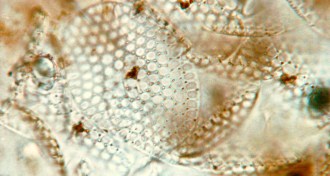 Paleontology
PaleontologyAncient microbe fossils show earliest evidence of shell making
Armor-plated, 809-million-year-old fossilized microbes discovered in Canada are the oldest known evidence of shell making.
-
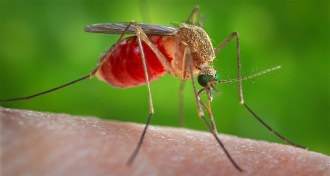 Animals
AnimalsNew case emerging for Culex mosquito as unexpected Zika spreader
The much-debated proposal that a Culex mosquito could help spread Zika gets some international support.
By Susan Milius -
 Genetics
GeneticsFirst ‘three-parent baby’ born from nuclear transfer
The first human baby produced through spindle nuclear transfer was born in April, New Scientist reports.
-
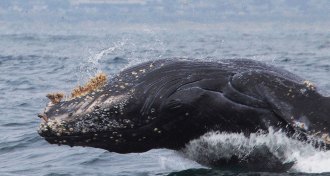 Animals
AnimalsBarnacles track whale migration
The mix of oxygen isotopes in the shells of barnacles that latch on to baleen whales may divulge how whale migration routes have changed over millions of years.
-
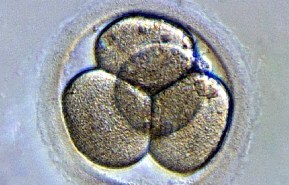 Genetics
GeneticsNew era of human embryo gene editing begins
Gene editing of viable human embryos is happening, in and out of the public eye.
-
 Health & Medicine
Health & MedicineIt’s time to retire the five-second rule
Wet food can slurp bacteria off the floor in less than a second.
-
 Plants
PlantsNarrowed plumbing lets flower survive summer cold snaps
Ice barriers help alpine plants save their flowers during summer cold snaps.
-
 Genetics
GeneticsEndurance training leaves no memory in muscles
Unlike strength training, endurance workouts left no genetic trace months later, calling into question idea of a general muscle memory.